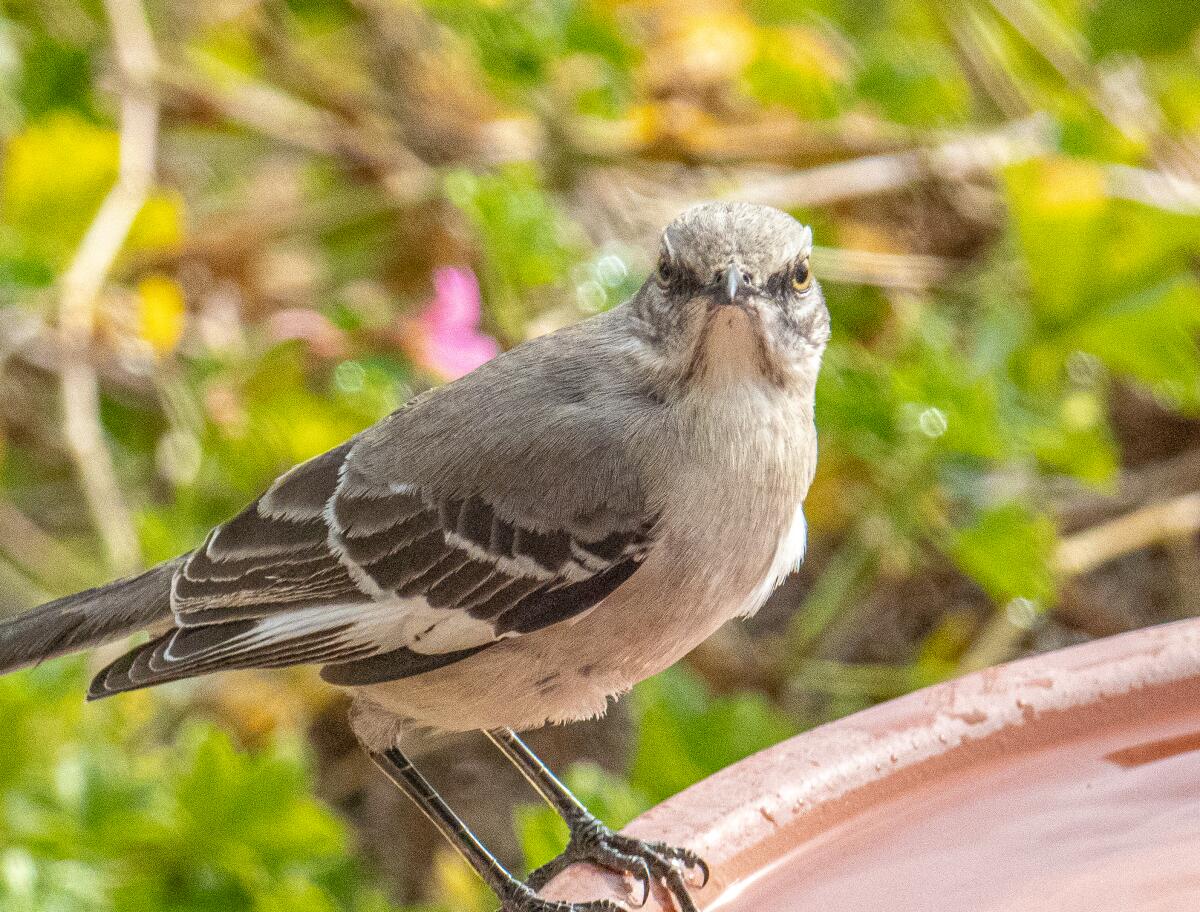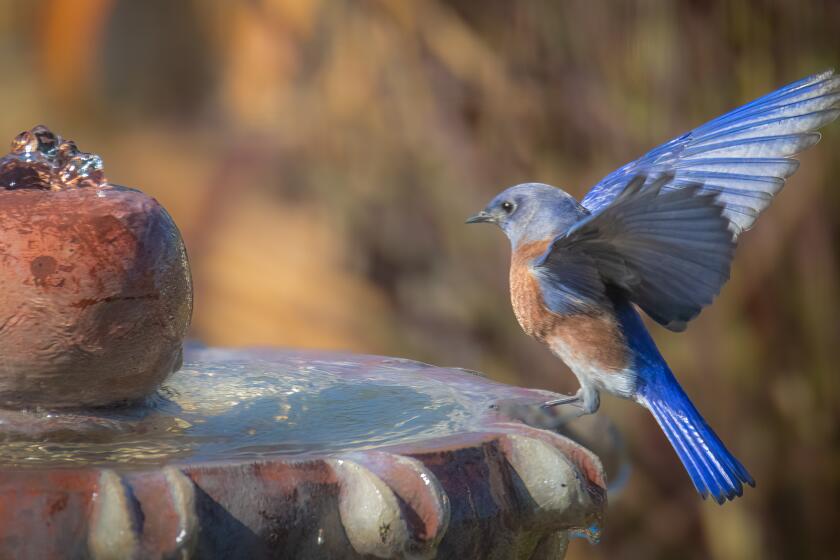Column: Readers have plenty to say about nocturnal noises of mockingbirds

Ernie Cowan’s Outdoors column
Who would have imagined the response I’d get to my last column on the midnight melodies of mockingbirds?
While discussing the frustrations of sleepless readers, I tossed out an invitation for ideas on how to deal with these late-night lotharios that often vocalize for hours on end. The result was more mail than any column has ever generated.
If you missed the column, it was the result of messages asking how to silence mockingbirds that sing throughout the night. With their ability to mock many sounds, like sirens, barking dogs, squeaky gates, or other birds, it can be very frustrating. It also doesn’t help that they personalize their songs and loudly repeat them over and over.
From the flood of reader email, this is something that happens more often than I imagined.
Like most things in life the opinions about the nocturnal noises of the mockingbird are across the board. Some love their nighttime singing, while those with sleepless, bloodshot eyes, not so much.
Bird experts will tell you that the all-night singing are songs of the lovelorn. Mockingbirds mate for life and the nocturnal vocalizations are either young males looking for their forever mate, or older ones who have lost a mate.
I suppose it could also be a carousing male out on the town, but I’ve seen no evidence of that.
As soon as the column appeared, I began getting email, with some arriving before dawn, likely from those poor individuals who were up anyway, thanks to a noisy mockingbird.
First were those suggesting ways of masking the noise, including earplugs or sound machines producing white noise or nature sounds. Seriously?
Reader Gail Boorman suggested installation of a fountain just outside the window to “muffle the bird songs.”
Personally, that might keep me up all night for other reasons.
Some of the earplug suggestions were very specific.
Linda Hughes wrote, “I have recommended Mack’s Pillow-Soft Earplugs for over thirty years, when they saved me while taking the state bar exam in noisy, distracting conditions.”
Robert Garrett recommends wax ear plugs.
“You hold it in the palm of your hand until it starts to get soft, then just put it in your ear and push until it takes the shape of your ear. They work very well,” he said.
Glen Guidry sent a one-liner.
“It has been said a million times, but ear plugs and/or sound machines will usually take care of most annoying animal sounds, including the snoring bear that sleeps next to my wife.”
He has a bear?
Ocean Beach resident Diana Stoker is a light sleeper, affected by her snoring fiancé, and “the cacophony of murmuring motorcycles, chatty homeless, and swarms of parrots.”
Her solution is an audiobook on her phone that turns off in 30 minutes, which is long enough to let her get to sleep.
“I can’t make the world be quiet, but I’ve found the cocktail to ease me into sleep and it’s not another nightcap,” she said.
Then there are those readers who love the nighttime notes of the mockingbird.
“Oh, what I would give for the sweet sound of a nighttime mockingbird,” wrote Katy Willow. “Unlike the readers you mentioned, I am definitely on the side of the Mockingbird.”
Kathleen Cueva is a Mount Helix resident who loves the mockingbirds at night and anxiously listens for them when awake.
“Interestingly, there are no songs around 4 a.m. I can actually tell what time it is without a clock and without a doubt,” she said. “The sounds usually start up again just before 5 a.m.”
Alberto Lau launched a more scientific effort to quiet the mockingbird.
He decided to record him with a Sony Walkman portable cassette deck.
“It was a beautiful recording,” Lau wrote.
Hoping to show the bird how lovely his song was, he held the Walkman out the window to play the recording back.
“Immediately the bird stopped singing. We thought he was listening, but when our playback ended, he did not resume his singing. Apparently, he flew away. He never came back,” Lau said. “It was an accidental discovery, happened only once, and may not work with the new generation of mockingbirds.”
Darn birds today!
Tracey Goetsch had a similar reaction to playing back a recording. We may be onto something here.
She was sleepless for several nights until deciding to record for a friend just how loud and annoying the mocker was.
“I played the noise back into the night at the original offender,” she wrote.
It worked and she never lost another night’s sleep.
She concluded, “it seems they couldn’t tolerate their own words.”
My last column was particularly timely for Susan Wiczynski.
“My husband was up at 5:20 a.m. with a lovelorn nocturnal crooner on an electrical wire outside our window. When the bird wouldn’t fly away with the usual shouting and arm waving (can mockingbirds roll their eyes?), my husband wadded up a piece of newspaper and chucked it at him. The bird initially ignored the paper but at the last moment realized it had been a decent throw and tried to flutter out of the way. My husband, now relieved of the singing nuisance, was too pleased with himself to go back to sleep,” she said.
Wiczynski has a history with midnight mockingbirds.
“I’m a longtime bird lover but wanted to commit birdicide the summer I was pregnant, when a lonely mocker set up camp in our yard and sang all night every night for months.
Tom Schroeder had nothing to offer on stopping singing mockingbirds but wanted to point out the irony of my last column that appeared on the 61st anniversary of “To Kill a Mockingbird.”
Maybe that was his suggestion.
Email ernie@packtrain.com or visit erniesoutdoors.blogspot.com.
Get North County news in your inbox
Top stories from the San Diego North County every Monday, Wednesday, and Friday.
You may occasionally receive promotional content from the San Diego Union-Tribune.








